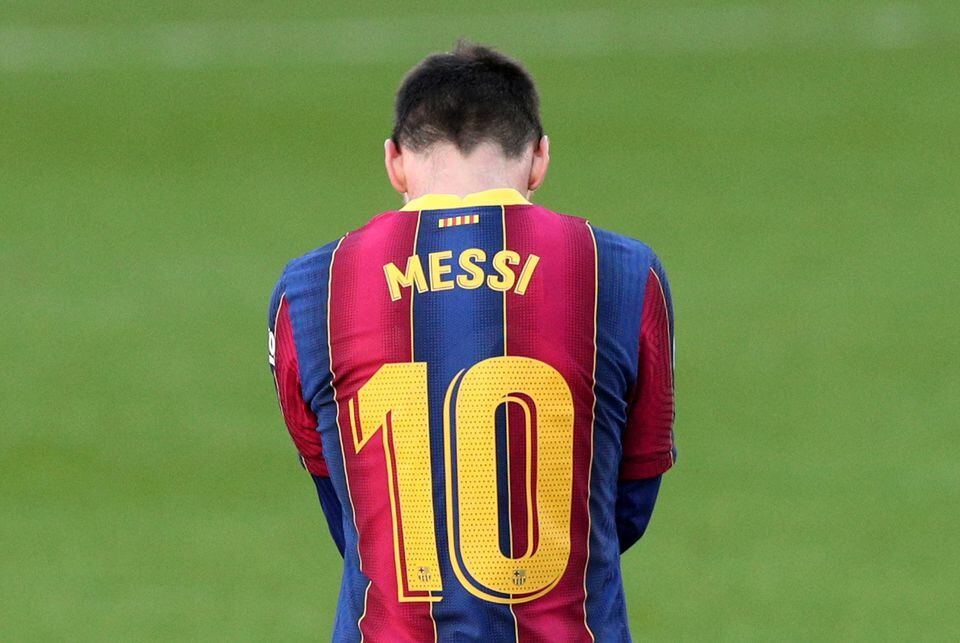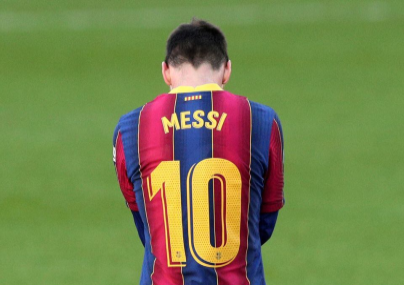
Keen to regain its footing as an international entertainment hub, Hong Kong had been desperately seeking a victory. But a recent attempt to score a goal on the football pitch has turned into a situation that has gone beyond the realm of sports, and instead become a matter of international relations.
It all started to go pear-shaped on Feb. 4. Some 40,000 diehard fans of Argentine football legend Lionel Messi, having spent lavishly on costly tickets and merchandise, ended up watching their idol sitting out a widely promoted pre-season match between the Hong Kong team and Messi's club Inter Miami.
Messi was the poster boy for the much-hyped event, the organisers of which had strongly implied in their promotional materials that the Ball d'Or winner would be on the pitch. As it became clear that Messi was going to stay on the bench all day, the event ended in a chorus of boos and jeers. The fallout was immediate: Hong Kong politicians roundly condemned the Argentine star's no-show, while on the mainland, a friendly match between Argentina and Nigeria scheduled for March in the city of Hangzhou was scrapped.
While Hong Kong's reputation took a hit, event organiser Tatler Asia bore a hefty financial brunt by agreeing to a 50 percent refund of all officially purchased tickets. The organiser said it promoted the match branded as Tatler XFEST Hong Kong following a "contractual agreement with Inter Miami" that marquee players including Lionel Messi "would play unless injured."
But lawyers fear that Tatler Asia's hands might be tied when it comes to holding Inter Miami accountable.
"It really depends on the actual wording of the contract signed between Tatler Asia and Inter Miami knowing that normal drafting of this kind of sports contracts can be somewhat ambiguous," says Colin Cohen, senior partner at Boase Cohen & Collins.
Eric Chan, principal at CPH Legal, believes there appears to be no breach of contract between Tatler and Inter Miami unless Tatler can prove the club has falsely claimed "fitness and safety considerations."
"If the terms are well defined enough and if Tatler Asia can prove that the alleged injuries were falsely proclaimed, then there is a breach of contract on the part of Inter Miami and Tatler can claim for damages. But my gut feeling (not having reviewed the contract) is that the terms would be favourable to Inter Miami," says Chan.
Cohen believes whether Tatler decides to pursue legal actions against Inter Miami would be more likely to be determined by commercial considerations. "If Tatler were to sue Inter Miami, other teams would think very hard before appointing Tatler as their promoter," says Cohen.
Questions have also arisen as to whether consumers, who have filed hundreds of complaints with claims totalling millions of Hong Kong dollars, have any legal grounds to seek full reimbursement from the event organiser.
In the latest development, Tatler Asia Chairman Michel Lamuniere now said he was only informed by Inter Miami 15 minutes before kick-off that Messi wouldn't play in the friendly match because of a hamstring injury. Previously, Lamuniere had claimed that he was told of Messi's non-participation in the second half of the match.
Chan thinks there is no evidence to show that Tatler Asia knew of the injuries and still declared that Messi would play.
"If there were (evidence), there could be a solid criminal case. Consumers may report Tatler Asia to the Customs and Excise for false description that Messi would play," says Chan.
Cohen also believes it will be "very difficult" for consumers to get a full refund through legal avenues. "You bought a ticket to watch a football game. A game was played with 22 players," says Cohen.
On the other hand, lawyers at Haiwen & Partners believe it's arguable that there could have been misrepresentation during the promotion of the event. Misrepresentation doesn't necessarily have to be intentional but can be caused by negligence or ignorance instead, the dispute resolution team based in Hong Kong notes.
"There have been promotional material strongly signalling Messi's participation in the match. Fans purchased tickets based on that information. If the organiser knew in advance that Messi couldn't play due to injuries but still claimed that he would, that could be a case of intentional misrepresentation; but even if the organiser failed to verify whether Messi would play, there could still be grounds of negligent misrepresentation," says the Haiwen team.
But the organiser may have a defence in misrepresentation. "The organiser can demonstrate that they had reasonable grounds to believe that Messi would participate in the match prior to the audience purchasing the tickets, for example, if the contract between the organiser and Inter Miami explicitly guaranteed Messi's participation in the match," the team adds.
